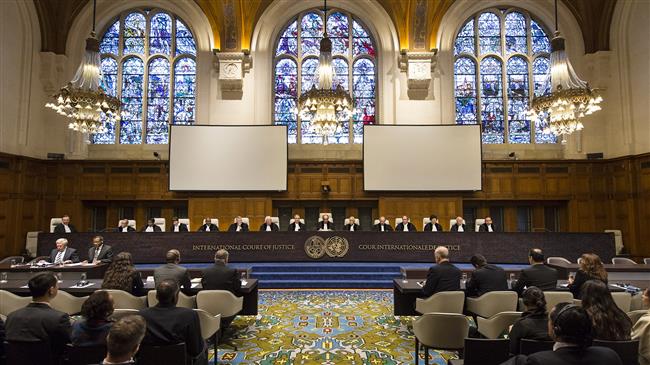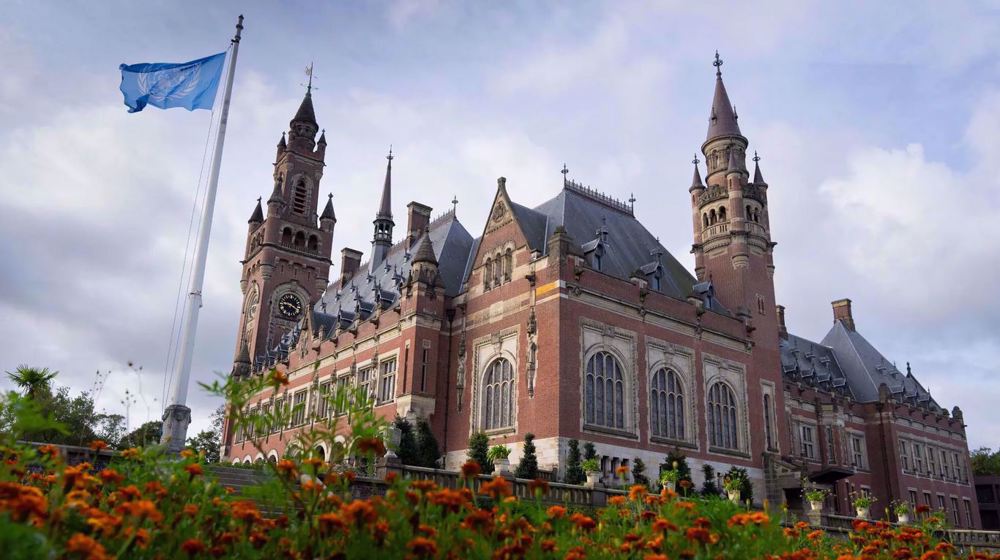Ex-British colony challenges UK claim to islands at ICJ
Former British colony Mauritius has challenged at the World Court the legality of the United Kingdom’s claim to its Chagos Islands, which now host the key US military base of Diego Garcia.
Mauritius’ former president Anerood Jugnauth took the case to the International Court of Justice (ICJ) in The Hague on Monday, arguing that the country had been deceitfully pressured to relinquish control of Chagos during post-independence negotiations with their British colonizers and that it had only agreed to temporary use of the islands for military objectives.
The UK detached the Chagos Islands from its then-colony of Mauritius in 1965, three years prior to offering it independence, but continued to keep the sparsely-populated archipelago part of the British overseas territories.
The US leased the Chagos Islands’ biggest island, Diego Garcia, from the UK in 1966 and constructed a major air base there after forcing its entire population of nearly 1,500 people to leave their homes.

Mauritius petitioned the United Nations (UN) in 2017 to seek an ICJ advisory opinion on the legality of Britain’s colonial-era annexation of Chagos.
Defying fierce opposition by London and Washington, the latter of which regards the Diego Garcia base as a vital military asset, the UN General Assembly referred the matter to the ICJ for an advisory opinion in 2017.
“The choice we were faced with was no choice at all: it was independence with detachment (of the Chagos archipelago) or no independence with detachment anyway,” Jugnauth argued before the ICJ’s 14-judge panel.
UK solicitor general Robert Buckland told the court in return that it should refuse to issue any opinion on the case, which he insisted was better suited to be resolved bilaterally.
Despite conceding in the court that the removal of the Chagossians and their treatment thereafter “was shameful and wrong,” Buckland argued that the matter had already been resolved in a 1982 agreement on compensation.
The people displaced from the Chagos Islands have lobbied for years to be allowed to return to their homes, but the British Foreign Office in 2016 extended Diego Garcia’s lease to the US until 2036 and declared that the expelled islanders would not be allowed to return to their homes.
Outside the court in The Hague, a small group of Chagossians gathered to protest. They displayed banners censuring “modern slavery” and demanded self-determination for Chagossians.

The case at the ICJ serves as a test of whether colonial-era pacts signed between great powers and weak nations that later gain independence are legitimate, considering the blatant power imbalance.
ICJ opinions are not binding, though they do carry weight under international law.
Latest ballots polls show Harris, Trump tied as voting continues
UNRWA warns of humanitarian collapse in Gaza
'Hello my enemies': Lebanese journalist on Israeli threats and his resolve to continue
Outrage in France as MP proposes bill to ban criticism of Israel
VIDEO | The strategy of Hezbollah in war
Israeli military withdraws several brigades from southern Lebanon: Report
48-year-old Palestinian man serving 48 life terms completes 22 years in Israeli jails
From MKO to Tondar, how Germany became safe haven for anti-Iran terror groups










 This makes it easy to access the Press TV website
This makes it easy to access the Press TV website